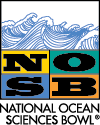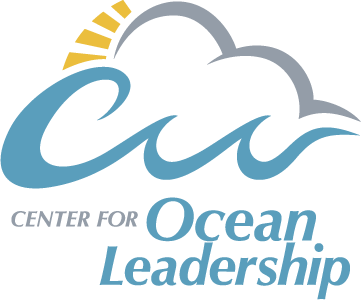Sounding the Depths: Understanding Ocean Acoustics
Resources

Ocean Acoustics
Ocean acoustics is the study of sound in the marine environment – a mixture of physical noise, biological noise, geological noise, and anthropogenic (human-caused) noise. By studying sound in the ocean, scientists advance our understanding of the ocean, its inhabitants, natural processes, and how humans have influenced the ocean system. Scientists can use active or passive acoustic technology. Active acoustics involves emitting sound waves and analyzing their echoes to study objects in the ocean, such as seafloor topography, fish populations, or a shipwreck. In contrast, passive acoustics involves capturing sounds from the surrounding environment with an acoustic device to monitor and estimate marine life behaviors and abundance, or investigate undersea volcanoes and earthquakes.
As sound is a primary means of communication for many marine species, disruption in acoustic environments can impact their behavior and survival. Specifically, ocean noise causes stress on marine life, disrupting communication, navigation, and marine behaviors of whales, dolphins, and fish. Prolonged exposure to high levels of underwater noise can lead to hearing loss, reduced feeding efficiency, and increased vulnerability to predators, threatening the existence of many organisms. Reducing ocean noise pollution contributes to healthier marine environments, supporting biodiversity and environmental sustainability.
Lastly, the study of ocean acoustics is also critical to society and our national security. The U.S. Navy is specifically interested in enhancing underwater navigation and communication, and the detection of submarines or other vessels. This knowledge helps improve maritime safety and maintains our nation’s strategic defense in global waters. But studying sound is also essential for protecting marine ecosystems, which directly impact our food security, livelihoods, and the health of coastal communities which are key to the growing blue economy.
Topics To Explore
Webinar Series
Coming soon! View the NOSB’s ocean acoustic related Professional Development Webinar Series recordings to learn more.
More Places To Learn
Discovery of Sound in the Sea Webinar Series (DOSITS)
The Art of Ocean Acoustics – GSO Ocean Classroom (URI Graduate School of Oceanography)
Impact of Noise Videos (NOAA Office of National Marine Sanctuaries)
Ocean Sound and Impact of Noise Webinars (NOAA Office of National Marine Sanctuaries)
Ocean Sounds Playlist on YouTube (NOAA Fisheries Southwest Acoustic Ecology)
Eavesdropping on the Ocean (Data Nuggets)
CRESCENDO (Communicating Research Expansively through Sonification and Community-Engaged Neuroaesthetic Data-literacy Opportunities) (University of South Florida)
An Ocean of Sound: Communication, soundscapes, and noise under the sea (Woods Hole Oceanographic Institution, Ocean Encounters event series)
Ocean Acoustics Education and Expertise (National Academies of Sciences, Engineering, and Medicine, 2024)
Underwater Acoustics for Everyone (Acoustics Today, 2014)
Listening to the Ocean Offers Insights into Climate Change (Acoustics Today, 2024)
Exploring the Ocean Through Soundscapes (Acoustics Today, 2018)
Weird Data – The Element of Surprise in Underwater Acoustic Sensing (Acoustics Today, 2022)
Ocean Acoustics in the Rapidly Changing Arctic (Acoustics Today, 2020)
Modeled underwater sound levels in the Pan-Arctic due to increased shipping: Analysis from 2013 to 2019 (The Journal of the Acoustical Society of America, 2024)
A statistical acoustics approach for estimating population-scale bowhead whale migration speed and direction (The Journal of the Acoustical Society of America, 2024)
Observing the Oceans Acoustically (Frontiers in Marine Science, 2019)
Zooplankton as a model to study the effects of anthropogenic sounds on aquatic ecosystems (Science of the Total Environment, 2024)
BOEM Center for Marine Acoustics
DOSITS Audio Gallery of Marine Mammals, Invertebrates, Fishes, and Natural and Anthropogenic Sounds
DOSITS Teacher & Student Resources (includes videos, articles, tutorials, and Power Points)
Free and Open Source Software for Acoustics
International Student Challenge Problem in Acoustic Signal Processing (2024)
Monterey Bay Aquarium Research Institute (MBARI) Sound Focus Area
NOAA National Centers for Environmental Information: Ocean Acoustics Data
NOAA Sanctuaries Ocean Sound Infographics
NOAA Sanctuaries Ocean Sound Lesson Plans
Ocean Noise Pollution Impacts Marine Mammals Lesson Plan
Sonification of ocean data, merging ocean color data with musical notes

